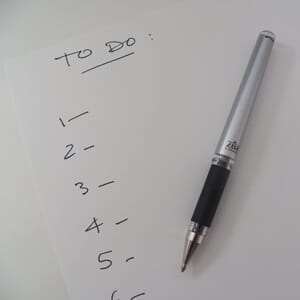Rethinking Self-Care
There has been much social commentary over the last few years about the topic of self-care. The basic premise of many of these articles is that we are all needing to ensure that we have enough self-care in our lives. Yet what does this actually mean?

Many times our response to these self-care messages, or health-related media messages, is to respond by adding something. Yet I feel it misses an essential point – this very desire to add something into our lives in order to care for ourselves can actually illuminate some deeper issues.
The authors of the study Conspicuous Consumption of Time: When Busyness and Lack of Leisure Time Become a Status Symbol explore how leisure and downtime no longer equate with ‘living the good life’. They are now afterthoughts to be ‘fit-in’ to the main objective of our lives – work, busyness, and attainment. The implications of this go well beyond looking at this shift in our perception of what it means to be affluent. It can also indicate a potentially fundamental imbalance within our lives.
Tackling this inequality in our lives could also be more helpful in the long run, in terms of our ongoing mental health and feelings of personal happiness or well-being, than simply adding more tasks to the hours of our day or checking that all forms of self-care have been accounted for every week.

This biological system can then perpetuate this unconscious thought – that our life is a series of compartments or lists that we must somehow keep in balance by adding or removing things, people, or tasks. We spend so much time with lists, spreadsheets, meetings, places to be, schedules, calendars, that we begin to view our own lives as naturally functioning in these ways. We manifest the idea that our life is a checklist, a balance sheet, a series of buckets we have to manage in order to feel full-filled, and that is the natural order of how ‘life is’.
So how do we care for ourselves, and those we love, without adding more to the daily schedule that brought us here, or without engaging the same internal process that potentially helped create the problem in the first place? How can you begin to address this without falling into the very trap of ‘adding something’?
When clients bring up this or related topics, I support them to work with aspects of their routine which already exist. Rather than saying ‘what can I add’, the easiest route can be ‘what can I alter that I already do’? The goal is a simple one – regular, repeatable steps with a minimum of alterations to their lives. Small steps which create minimal disruption are actually most beneficial and can display results more quickly. By the way, this is also the difficulty with our New Year Resolutions!
Noticing a life out of balance may not be the best time to commit to adding the gym four times a week to your schedule. Working with your existing routine can open up ideas such as setting limits on work-related tasks like email, looking at whether binge-watching is really rejuvenating, or noting how often you are looking at a screen. A 2018 report from the Nielsen Company noted that adults in North America spend, on average, 10.5 hours in front of some form of media or screen technology a day! Is it possible we can find some true renewal time in those hours?

What if we decided to not share an article on self-care (says the man hoping you will share this article), but to share our own struggle with finding balance, and asking who also shares that struggle? How can we widen the conversation to include our partner, or others we are in a relationship with? Rather than ‘find time to add…’, we can choose to open up a deeper conversation about the underlying issues – where are we out of balance; what are the reasons for, and implications of, that imbalance? How did we personally get here? Having conversations like these with someone in the same room is actually a step towards a deeper solution.
Don’t take my word for it – if anything in this article has connected with something inside you, test the theory! what can you do next with this idea? What simple step can you take in your life? Where are you out of balance, and what can shift? What conversation can you have with those you love? Where can you turn off the screen and invite others into connection, fun, leisure, and togetherness?

This would be the truest form of self-care imaginable. It would also be a renewal of the original, and more accurate, definition of ‘living a connected life’.
Rethinking Self-Care
There has been much social commentary over the last few years about the topic of self-care. The basic premise of many of these articles is that we are all needing to ensure that we have enough self-care in our lives. Yet what does this actually mean?

Many times our response to these self-care messages, or health-related media messages, is to respond by adding something. Yet I feel it misses an essential point – this very desire to add something into our lives in order to care for ourselves can actually illuminate some deeper issues.
The authors of the study Conspicuous Consumption of Time: When Busyness and Lack of Leisure Time Become a Status Symbol explore how leisure and downtime no longer equate with ‘living the good life’. They are now afterthoughts to be ‘fit-in’ to the main objective of our lives – work, busyness, and attainment. The implications of this go well beyond looking at this shift in our perception of what it means to be affluent. It can also indicate a potentially fundamental imbalance within our lives.
Tackling this inequality in our lives could also be more helpful in the long run, in terms of our ongoing mental health and feelings of personal happiness or well-being, than simply adding more tasks to the hours of our day or checking that all forms of self-care have been accounted for every week.

This biological system can then perpetuate this unconscious thought – that our life is a series of compartments or lists that we must somehow keep in balance by adding or removing things, people, or tasks. We spend so much time with lists, spreadsheets, meetings, places to be, schedules, calendars, that we begin to view our own lives as naturally functioning in these ways. We manifest the idea that our life is a checklist, a balance sheet, a series of buckets we have to manage in order to feel full-filled, and that is the natural order of how ‘life is’.
So how do we care for ourselves, and those we love, without adding more to the daily schedule that brought us here, or without engaging the same internal process that potentially helped create the problem in the first place? How can you begin to address this without falling into the very trap of ‘adding something’?
When clients bring up this or related topics, I support them to work with aspects of their routine which already exist. Rather than saying ‘what can I add’, the easiest route can be ‘what can I alter that I already do’? The goal is a simple one – regular, repeatable steps with a minimum of alterations to their lives. Small steps which create minimal disruption are actually most beneficial and can display results more quickly. By the way, this is also the difficulty with our New Year Resolutions!
Noticing a life out of balance may not be the best time to commit to adding the gym four times a week to your schedule. Working with your existing routine can open up ideas such as setting limits on work-related tasks like email, looking at whether binge-watching is really rejuvenating, or noting how often you are looking at a screen. A 2018 report from the Nielsen Company noted that adults in North America spend, on average, 10.5 hours in front of some form of media or screen technology a day! Is it possible we can find some true renewal time in those hours?

What if we decided to not share an article on self-care (says the man hoping you will share this article), but to share our own struggle with finding balance, and asking who also shares that struggle? How can we widen the conversation to include our partner, or others we are in a relationship with? Rather than ‘find time to add…’, we can choose to open up a deeper conversation about the underlying issues – where are we out of balance; what are the reasons for, and implications of, that imbalance? How did we personally get here? Having conversations like these with someone in the same room is actually a step towards a deeper solution.
Don’t take my word for it – if anything in this article has connected with something inside you, test the theory! what can you do next with this idea? What simple step can you take in your life? Where are you out of balance, and what can shift? What conversation can you have with those you love? Where can you turn off the screen and invite others into connection, fun, leisure, and togetherness?

This would be the truest form of self-care imaginable. It would also be a renewal of the original, and more accurate, definition of ‘living a connected life’.

Leave A Comment